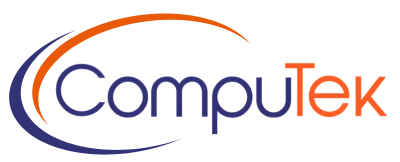
When most people think of cyberattacks, they picture hackers breaking into systems with complex code. But in reality, one of the most effective methods attackers use doesn’t involve code at all—it involves people. This is called social engineering, and it’s one of the fastest-growing threats facing businesses today.
What is Social Engineering?
Social engineering is a tactic cybercriminals use to manipulate people into giving up confidential information. Instead of exploiting a system’s technical weaknesses, they exploit human nature—curiosity, trust, fear, or urgency.
The most common types of social engineering include:
- Phishing: Fake emails or messages designed to trick recipients into clicking a malicious link or providing sensitive information.
- Pretexting: An attacker creates a fabricated scenario—like pretending to be from your IT department—to gain access to internal systems.
- Baiting: Leaving infected USB drives in public spaces, hoping someone will plug them into a work computer.
- Tailgating: Physically following someone into a secure area without proper credentials.
Why Businesses Are Prime Targets
Small to mid-sized businesses often assume they’re too small to be noticed. In fact, that makes them even more appealing targets. Many lack robust cybersecurity training or tools, making social engineering especially effective.
Attackers often target employees through LinkedIn or company websites, using publicly available information to craft convincing emails or calls.
For example:
“Hi Sarah, this is Kevin from your IT support team. We noticed unusual activity on your account. Can you confirm your login credentials so we can secure it?”
In a rush to help, employees may not stop to question the request—and just like that, the attacker is in.
How to Defend Your Business
At Computek, we believe cybersecurity isn’t just about firewalls and antivirus—it’s also about empowering your employees. Here’s how to start:
- Employee Training
Regular training sessions can help staff recognize red flags in emails, messages, or phone calls. Teach them to:
- Verify unexpected requests independently.
- Never click on suspicious links.
- Avoid sharing credentials—especially over the phone or email.
- Simulated Phishing Tests
We offer tools that test your team’s readiness with mock phishing emails. This provides valuable insight and reinforces training.
- Multi-Factor Authentication (MFA)
Even if credentials are stolen, MFA adds an extra layer of protection by requiring a second method of verification.
- Access Controls
Limit access to sensitive data based on role. The fewer people with access, the lower the risk of a successful scam.
- Incident Response Planning
Have a clear plan in place if an employee does fall victim. The faster you act, the more damage you can prevent.
Stay One Step Ahead
Social engineering thrives on a lack of awareness. The good news? With the right training and technology, your business can be prepared.
At Computek, we specialize in helping businesses in Georgetown, Round Rock, Cedar Park, and throughout Central Texas stay secure and resilient. Let’s build your human firewall—because your people are your first line of defense.
Ready to boost your team’s cybersecurity awareness?
Contact us today to schedule a security assessment or employee training session.
